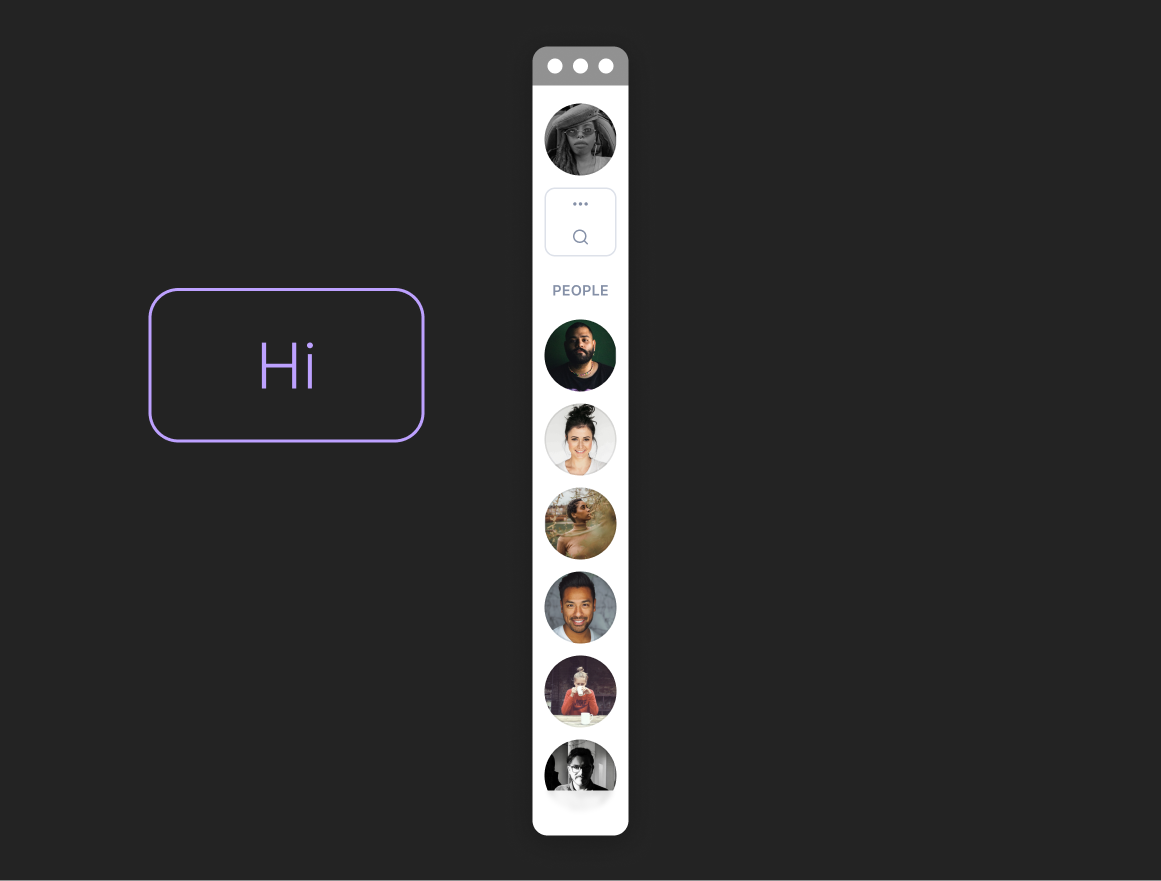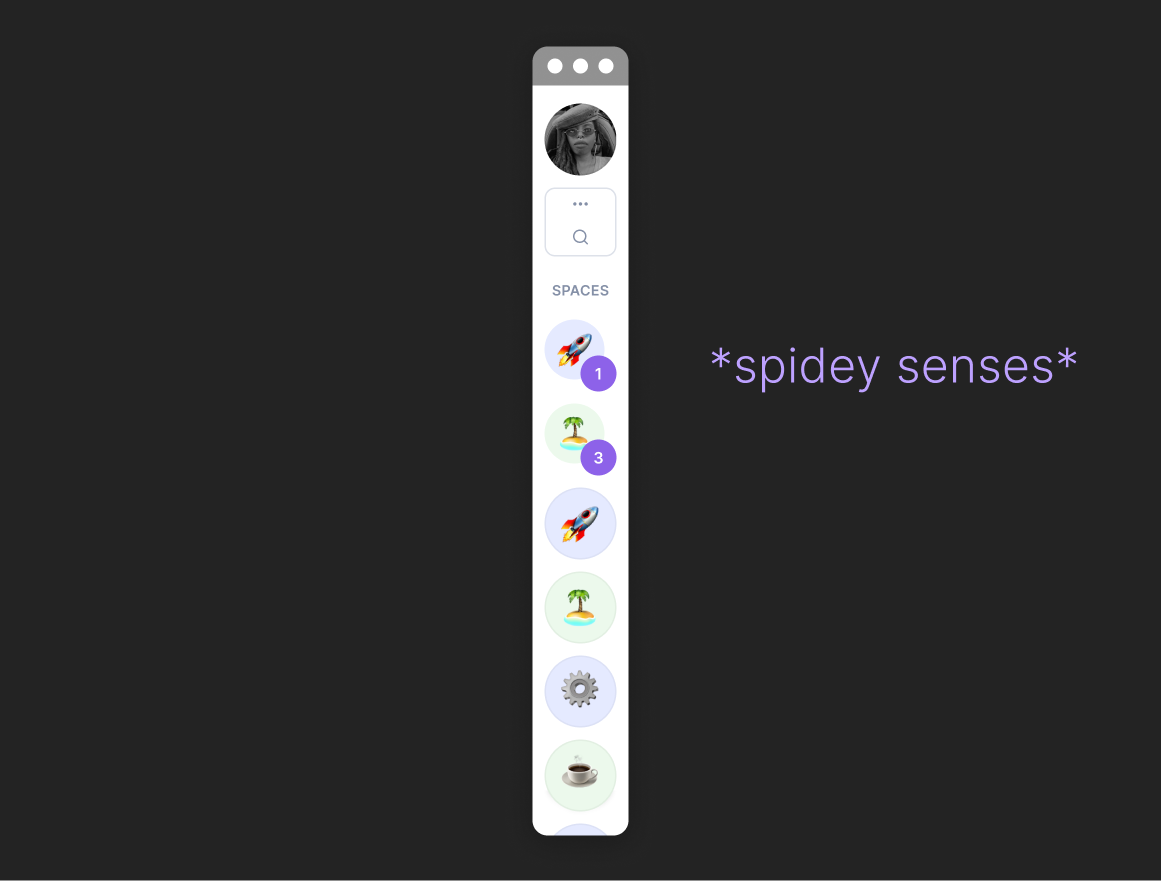
TRIBE
Senior UX Researcher
Overview
Overview
CHALLENGE
Tribe is a B2C remote-first, video-first communication environment for teams The problem was that tribes would have many predetermined Spaces, expanding them would become boring and irrelevant. The challenge was to validate the relevancy of active Spaces by the presence (activity) of the user’s team.
MY ROLE
Independently, I planned the research goals, recruited new users and created the task design. I designed two variables (A and B prototypes in Figma) to test within-subjects. I saw my recommendations through to development.
Tribe is a B2C remote-first, video-first communication environment for teams The problem was that tribes would have many predetermined Spaces, expanding them would become boring and irrelevant. The challenge was to validate the relevancy of active Spaces by the presence (activity) of the user’s team.
MY ROLE
Independently, I planned the research goals, recruited new users and created the task design. I designed two variables (A and B prototypes in Figma) to test within-subjects. I saw my recommendations through to development.
APPROACH
Primary research: multivariate testing
OUTCOMES
Product development has begun with my recommendations taken forward, an enhancement to the Spaces feature; events tracked revealed an increase in Spaces joined. Users joined more Spaces by having an awareness of their team’s activity in relevant Spaces.
LINKS
Tribe
Primary research: multivariate testing
OUTCOMES
Product development has begun with my recommendations taken forward, an enhancement to the Spaces feature; events tracked revealed an increase in Spaces joined. Users joined more Spaces by having an awareness of their team’s activity in relevant Spaces.
LINKS
Tribe
What is Tribe?
Say hello to Tribe’s “Totem”
The totem is a central place where users interact with their team. They can make calls, enter a Space, record a video message, and pin relevant contacts.
We shared this information with our users so that they may have an understanding of the totem and Spaces.
What are “Spaces” in Tribe?
I’m sure we’ve all worked in an office before, right? Do you remember having to find a conference room available before booking it, waiting for everyone to pass around the word?
Well...”Spaces” are virtual conference rooms – ta-da!
Whenever your coworker or even a member of another department in your organization occupies a Space, you can see it. If you see your team spontaneously huddle in a Space, you can see that! This helps you to be present and have a sense of belonging.

Tribe’s Totem

Spaces in Tribe
Method
When planning the research for this project, I wanted to gain rich insight from the market since our goal was to reach product-market fit. This gave me data to analyze and compare the user’s thoughts about Spaces versus how they are interacting with them.
- Multivariate testing with users who are not familiar with Spaces to learn about the mental models of employees and validate the logical arrangement of active Spaces
Key Insights
From my research, I discovered how users are understanding Spaces and prefer to use them:
- Chronological order helped productivity: users preferred seeing active Spaces in the order of which they last joined because it helped them find a Space quicker
- Activity of team matters: users liked being aware of their team’s activity since they preferred seeing their last joined Spaces in chronological order, those Spaces were also used by their teammates
Multivariate Test

Tested with-in subjects: (1) Most populated Spaces (2) Last used Spaces
Strategic Recommendations
- With the results, I created a behavior that sorted Spaces relevant to the user. The new arrangement helped users complete tasks with velocity.
I advised the product team of the user flow and states that would be necessary for the functionality to be successful and user-friendly.
Reflections
In a perfect world, there would not be any time constraints as we had with this study. I reviewed my research and created a list of things I would do differently if I had an essential resource such as more time:
- Interview new and expert Tribe users about the nature of their work and the level of their work; their understanding of Spaces, if they use them (how often), and what do they use them for
- Moderated usability testing with new and expert Tribe users to triangulate the S-data and B-data, removing any guesswork